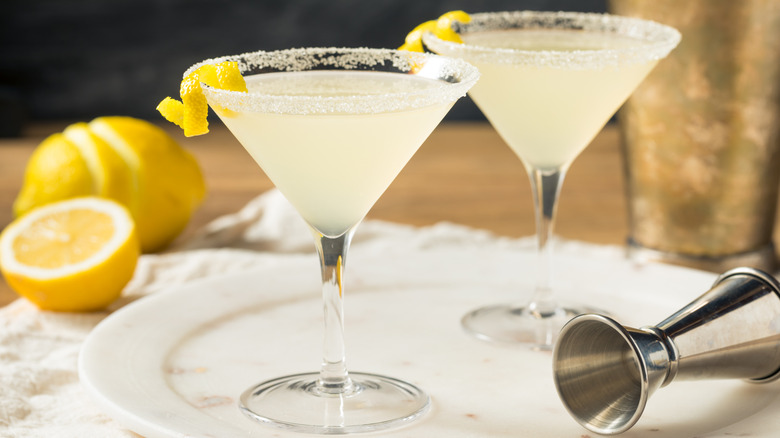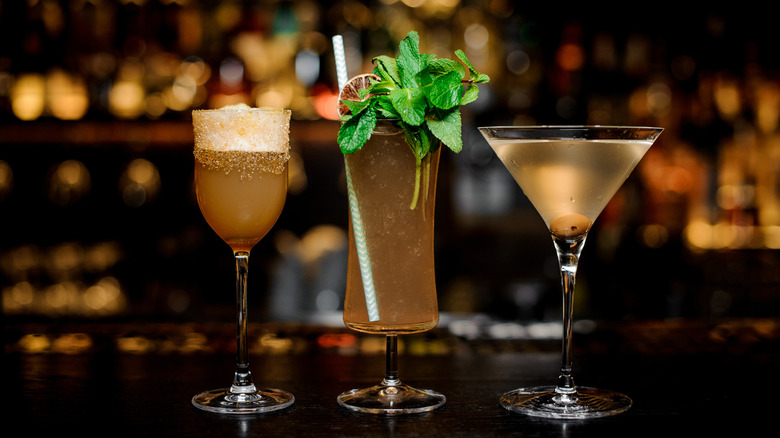No, A Lemon Drop Cocktail Is Not A Martini. Here's Why
Martinis are certainly having their moment in the spotlight, but what about the lemon drop cocktail? You might think the citrusy drink would pop up as one of many martini variations, but you'd be wrong, because a lemon drop cocktail is actually, seriously, unreservedly ... not a martini. Though the origins of the martini are murky, the overall recipe is not. The spirit-forward drink has its roots in the late 19th century American bartending scene, but whether the name came from the Martinez cocktail or the Martini & Rossi vermouth brand, only ye olde ghosts of cocktail lore can say.
Nevertheless, there are two essential ingredient that make the classic martini: gin and dry vermouth — and a lemon twist for garnish, if you like. If you want to add olive brine, onions, ororange bitters, it will still be a martini, albeit with a different name (dirty, Gibson, or dry, respectively). As far as gin versus vodka for martinis, that's a whole other argument to be hashed out amongst pedantic bartenders and drink historians.
The lemon drop cocktail, on the other hand, is not a martini because of its very ingredients. According to Grey Goose, their version is made with lemon-flavored vodka, triple sec, fresh-squeezed lemon juice, and simple syrup. The brand also affirms that "All vodka martini cocktails must contain vodka and vermouth to earn that designation." The ingredients are shaken, not stirred, and poured into a cocktail glass rimmed with sugar.
Why a lemon drop is not a martini cocktail
Perhaps the misconception that a lemon drop is a variation of a martini began because both drinks are usually served straight up in the classic martini glass. But that is where the similarities end. Created by a San Francisco bartender in the 1970s, the lemon drop is said to evoke the lemon drop hard candy with its initial sugar rush on the rim, followed by the puckery punch of lemon juice and orange-flavored liqueur. A lemon drop is always made with vodka, not gin, in order to let the fresh-squeezed lemon juice shine through.
Perhaps the closest relative to a lemon drop is the Crusta, a New Orleans invention from the 1850s. The key to a Crusta is in its name — it's imperative to line your cockail glass with sugar way ahead of time, so that the rim has time to "crust" up. Though the Crusta was out of fashion for more than a century, it has made a triumphant return to modern day classics, with the most common version being a Brandy Crusta.
If you're in a rush or serving a large crowd, consider the lemon drop shot. You can elevate the shot by mixing in some lemon zest with your sugared rim. No matter how you imbibe, you'll in be in good company, as it just so happens to be Martha Stewart's favorite cocktail. She, of course, takes it to the next level by using Meyer lemons, a hybrid citrus with a sweeter, less acidic twist.

